Are you looking for a delicious yet healthier alternative to maltose? You’re in luck.
This article will discuss the best five substitutes for maltose, what it is and how you can use it.
With this knowledge, you’ll be able to become a better cook while still keeping your health in check.
So, let’s dive right in.
What’s Maltose?

Maltose, also known as malt sugar, is a type of sugar derived from malted grain starches.
It is typically used in the brewing and distilling processes to convert starch into fermentable sugar which results in the alcoholic beverages enjoyed today.
Maltose can also be used as an ingredient for baking and candy making, to sweeten foods and drinks, and even as an additive for thickening sauces or gravies.
Maltose has a much sweeter taste than sucrose (regular table sugar), measuring about two-thirds as sweet.
It’s usually found in liquid form, but can also come in powder or syrup variations.
Maltose is commonly used in baking Chinese moon cakes, Chinese dip fried dough pies, fermented millet wine and other traditional sweets.
It can be difficult to find maltose if you do not live near a specialty food retailer or have easy access to Asian cuisine ingredients.
Fortunately, you can still get the same taste and texture with some popular substitutes often already found within your kitchen cabinets.
5 Best Maltose Substitutes to Consider
Maltose is a type of carbohydrate found in various foods including wheat and barley.
It is used in baking, food processing and numerous other products.
Unfortunately, not everyone can consume maltose due to dietary constraints or allergies.
Luckily, there are several substitutes that can be used as an alternative.
Below are five of the best substitutes for maltose to consider.
1 – Honey

Honey is a popular natural sweetener that works very well as a substitute for maltose.
Honey is made primarily of monosaccharides – fructose and glucose – and to a lesser degree, smaller amounts of disaccharides including maltose.
Unlike maltose, honey does not need to be mixed with water before dissolving.
Honey is sweeter than maltose, so you will need to use less of it when substituting it for maltose in recipes stemming from cuisines such as Chinese and Japanese which typically call for the use of maltose.
When substituting honey for maltose, try using 1/2 cup of honey per 1 cup of sugar or 1/4 cup per 1/2 cup of sugar.
Keep in mind that honey has a much stronger flavor than maltose, so if you are looking for something more neutral in taste then it might be better to choose another substitute.
2 – Barley Malt Syrup
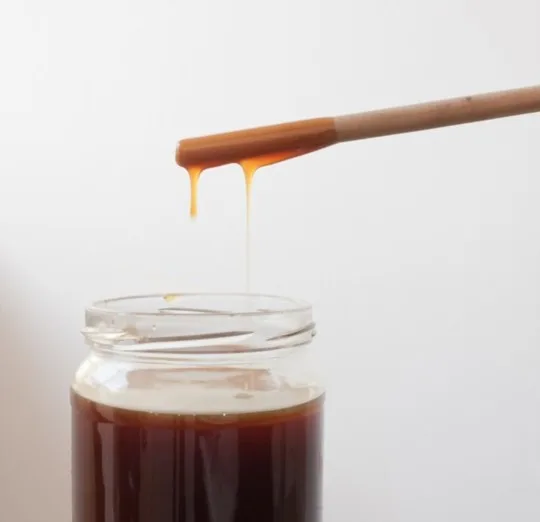
Barley malt syrup is an unrefined sweetener made of barley, which is produced by sprouting and malting the grains, then cooking and evaporating them to create a thick syrup.
It’s mild in flavor and is sometimes used interchangeably with maltose as a sugar substitute.
Barley malt syrup can range from light to dark in color; the darker varieties have a stronger flavor with more minerals and nutrients that aren’t present in the lighter versions.
This syrup can be used to replace sugar, honey or corn syrup, but it should be noted that it does contain gluten.
If making baked goods for someone with a gluten intolerance, gluten-free barley malt syrup can be found online or at some health food stores.
3 – Brown Rice Syrup
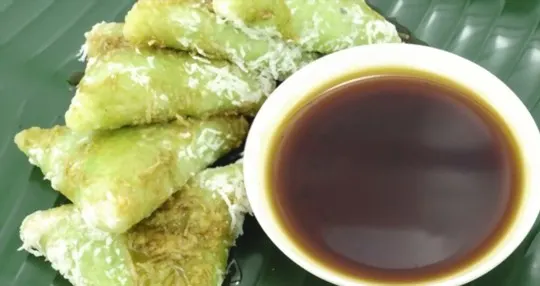
Brown rice syrup is a thick and sweet liquid made from cooked brown rice.
It has a slightly nutty flavor, with hints of toffee and butterscotch that becomes more pronounced at higher temperatures.
Brown rice syrup is commonly used in baking recipes as an alternative to white sugar, although it is not quite as sweet.
It can also be used as a drizzle on pancakes, waffles and other cooked breakfast foods.
When choosing a substitute for maltose, brown rice syrup has several advantages because it is vegan-friendly, gluten-free and very low on the glycemic index.
It’s suitable for people with diabetes who may have trouble metabolizing maltose quickly.
The downside of using brown rice syrup is that it does not caramelize in the same way as maltose does in candy recipes.
The end result may be less crisp than if you used maltose instead.
4 – Corn Syrup
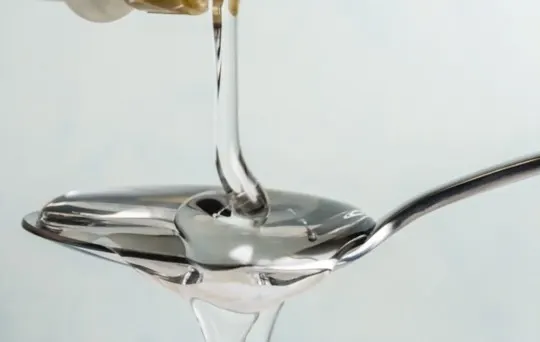
Corn syrup is a thick, sweet syrupy solution derived from the starch of corn and is frequently used in candy and other sweet treats to prevent them from crystallizing.
It has a mild, nearly neutral taste and offers the same texture as maltose.
When substituting corn syrup for maltose, use 3/4 cup or 175 ml of corn syrup for 1 cup or 250 ml of maltose.
You can also use it as a sugar alternative when baking – just remember to reduce the other liquid ingredients by 1/4 cup or 59 ml for each cup of corn syrup used.
Corn syrup is not suitable for those with fructose malabsorption syndrome or IBS since it contains high levels of fructose, so caution should be taken if using it as a substitute for maltose in your recipes.
5 – Maple Syrup
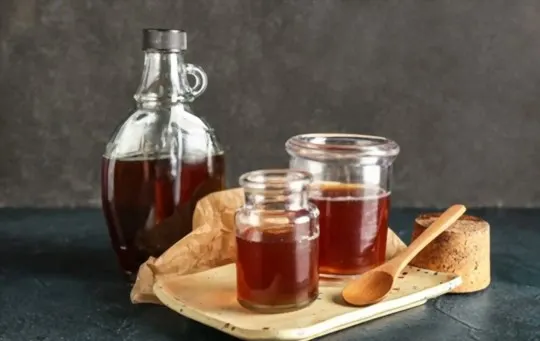
Maple syrup is a great substitution for maltose because of its thick, rich consistency and sweet flavor.
Many chefs consider maple syrup to be the best substitute for maltose due to its flavor profile and ability to work well in a wide variety of recipes.
In some cases, maple syrup can even be used in place of sugar when baking, although you may need to adjust your measurements depending on the density of each product since sugar is less dense than maple syrup.
It’s important to note that pure maple syrup can be quite expensive, so if you’re looking for something more budget-friendly look for “maple-flavored” syrups which contain actual Maple Syrup but are much less costly than pure grade A Maple Syrup.
Conclusion
Maltose is a common carbohydrate found in many food items, including baked goods and most types of beer.
It is used as an ingredient and to sweeten products.
Maltose may not be suitable for those on restricted diets or who have allergies or a sensitivity to maltose, so there are alternatives.
When substituting maltose with one of the listed items, be sure to pay attention to the intensity of sweetness.
Depending on the product being made, you may need to adjust the amount used compared to what is called for in the recipe.
Glucose syrup and corn syrup can replace maltose without altering recipes too much but if you want more than just sweetness from your substitute then look into honey or molasses or agave nectar.
Experiment by trying them in your recipes – you might just discover some delicious combinations.
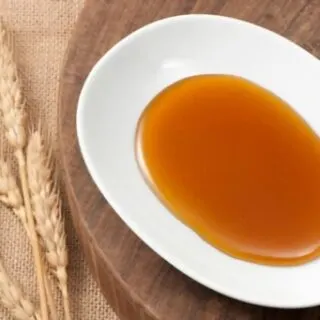
5 Best Maltose Substitutes to Consider
Ingredients
- 1 – Honey
- 2 – Barley Malt Syrup
- 3 – Brown Rice Syrup
- 4 – Corn Syrup
- 5 – Maple Syrup
Instructions
- Choose your preferred substitute from the list of options.
- Organize all of your ingredients.
- Use the proper substitute to cook your recipes.

Carrie is a food writer and editor with more than 15 years of experience. She has worked for some of the biggest names in the food industry, including Bon Appétit, Food & Wine, and Martha Stewart Living.
As the Editor in Chief of IntroChicago.com, Carrie oversees all of the content on the site. She also manages the team of contributing writers and editors, who help to create delicious recipes, helpful tips, and informative articles that you’ll find on the site.
A native of the Chicago area, Carrie is passionate about all things food. She loves trying new restaurants and experimenting with new recipes in her kitchen. She’s also a graduate of the Culinary Institute of America, so she knows a thing or two about food!
